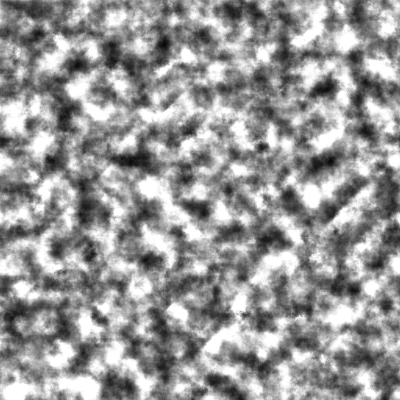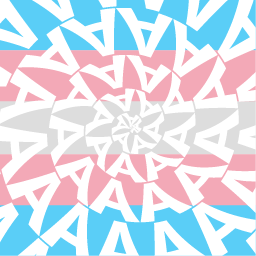You’ve just given me examples of genders (and, for unexplained reasons, declared that some of those examples are “not valid”). I wonder if you would be so kind as to enlighten me as to the nature of gender in general?
wizzwizz4
I like tools. Tools exist to serve a purpose; good tools serve many purposes. The purposes are the important part – but I’m no good at solving problems. I hope my tools will be enough.
Testimonials from satisfied costumers:
• “this pun is so fucking bad and i hate you for it” — @miko
If I’m doing wrong, please tell me. Either I don’t know (and you’ve saved everyone a lot of grief), or I do know (and I should face consequences).
- 0 Posts
- 31 Comments
You think it’s so easy? Those people you’re mocking and trying to exclude from trans spaces aren’t exactly immune from such treatment in cis spaces. Attitudes like yours, though in the minority, are common enough to make many trans spaces unwelcoming, or even unsafe.
So where should they go?
You say they don’t realise “how difficult and painful it is to really actually be trans”, but that’s exactly the same as saying *you* don’t realise that about womanhood.
End the cycle. Please.
Hurt people hurt people. You’re lashing out, saying the same thing about others that others say about you.
You don’t understand their experiences, therefore their experiences aren’t real. They’re invading trans spaces: they don’t understand that being trans is supposed to be painful and hard, not like you (a real trans person) do.
But s/trans/female/, and that sounds just like TERF rhetoric.
I understand that you feel this way, but do you have a single shred of evidence for your claims? From my perspective, you are indistinguishable from a transphobic bigot – right down to the slurs.
But I get where you’re coming from. You’ve suffered a lot to get where you are, and then you see these other people who don’t suffer the way you did and do, who are claiming those labels you fought so hard for.
But since when is being trans about suffering?
Regarding your “hot and cold” analogy: warm menthol applied to the skin feels hot and cold. In thermodynamics we have https://en.wikipedia.org/wiki/Negative_temperature:
> A system with a truly negative temperature on the Kelvin scale is hotter than any system with a positive temperature.
If you clarify what you mean by “hot” and “cold”, I’m sure I can find plenty more examples where the real world doesn’t match your simplistic, obstinate understanding.
“It’s nonsensical, someone AMAB cannot start being a woman, these things are polar opposites, like a square saying it’s a circle, it is asinine to say it, this shit is honestly offensive to us real women.”
Please explain how what you’re saying is any different to the above. Then maybe educate yourself, or at the very least, butt out.
Your view is not even popular, so don’t say you’re speaking for “us real trans people”.
(This is incorrect.)
Since you say so, you must know what a gender identity is. Tell me then, what is gender? What principle makes something a gender, or not a gender?
Do you have any reason to believe that, other than your intuition? Plenty of aspects of reality are unintuitive, and people, in my experience, can be even less intuitive than quantum mechanics. As non-binary identities go, bigender isn’t a contested one.
Consider giving https://nonbinary.wiki/wiki/Bigender a brief read, and checking out the references.
Your definitions are overly simplistic. There are bigender people who are male and female and are still non-binary.
And it’s connected to the whole rest of the Fediverse, which is certainly not a women-only space. Things you post here will be seen outside the context of this magazine.

 18·1 year ago
18·1 year agoI’m fairly sure https://www.deviantart.com/haasap-gasko/art/FtM-problems-542836120 is the original: perhaps someone can grab a higher res version (and attribute it properly).

 4·1 year ago
4·1 year agoI think that’s mostly an American thing: they think that their “racial” categories are the same thing as ethnicity, and since race is defined by racists (who believe that it’s an innate inherited trait), it’s constrained by them too.
“I was born French, but now I consider myself Corsican.” is an uncommon but perfectly normal thing in Europe.
American racism is just absurd, even by racism standards. That absurdity even influences American anti-racism.

 1·1 year ago
1·1 year agoIf you have to go out of your way to find (or invent) a joke, you haven’t found the right angle on it. Satire is qualitatively different to bullying.
Shows like South Park are at their most funny when the contrivances are kept to a minimum, or are so absurd that they’re obviously farcical. The best satire is when they’re teasing their target *and* their target’s detractors at the same time.
There are so many other takes they could have made. (I’d give examples, but I’m too prudish to say 'em.)

 01·1 year ago
01·1 year agoI’m confused. What action are you proposing? As far as I’m aware, the state-of-the-art treatments for trans people have precisely zero to do with the origins of transness. (That’s one of the reasons I reckon the research in the area is understudied: as with autism, when the actual experts turn their hands to practical matters, they tend to focus on adapting things to better suit people in question, rather than trying to eliminate the development of non-conforming traits.)

 01·1 year ago
01·1 year ago@Azzu We can work with what we have: but what we have cannot be used in the way you’re trying to use it. It is very much early days: what we’re discovering is barely more than trivia, and our conclusions routinely get overthrown when we figure out we were looking at the data wrong.
You’re saying “some studies try to apply the ‘it’s innate’ model, and get results, therefore it’s innate”, and I’m saying “there is as yet insufficient evidence to support that reasoning”. Why do we disagree here?

 01·1 year ago
01·1 year agoThese studies show that the measured effects are statistically significant; that doesn’t mean it’s universal, only that it’s prevalent enough in the population to be detectable. It doesn’t mean that this is *the* reason: only that it’s part of the puzzle.
Loads of trans people have “always in some way felt like this” – and loads of trans people haven’t particularly noticed anything for decades. Academic explanations are very much incomplete: many don’t even know what they need to be explaining.

 01·1 year ago
01·1 year agoThat dichotomy is non-exhaustive. What about innate conditions that are majorly, but not entirely, affected by circumstance? What about conditions that present identically, but are “really” multiple different things, each with distinct causes?
When we don’t know, I don’t think it’s useful to try to talk about things as though we do.
You don’t know enough to classify those things the way you’ve classified them – or if you do, please share the research because I’m interested in this topic!

 01·1 year ago
01·1 year agoAll conditions have an innate genetic cause: ever seen a diabetic rock?
I get what you’re saying, but this isn’t one of those things where allele X causes phenotype Y. At best, there’s genetic predisposition.
Mammal brains are quite generic. Perhaps the body map is hardcoded, but not even the visual system is hardcoded, and humans with >5 fingers or tails rarely have problems using them, so that would surprise me. If it develops from body feedback, a “disruption” to that could cause all sorts.
Interesting: you talk about “sex of the brain” and “brain deformities”. That suggests you’re aware of concrete ways in which gender corresponds to structural characteristics of the encephalon: neophrenology, in other words.
Whereas it was my understanding that every attempt to sex people using fMRI pinpointed different structures each time and perpetually failed to replicate, and that absolutely none of what you say is remotely the academic consensus.
Why do you think this?